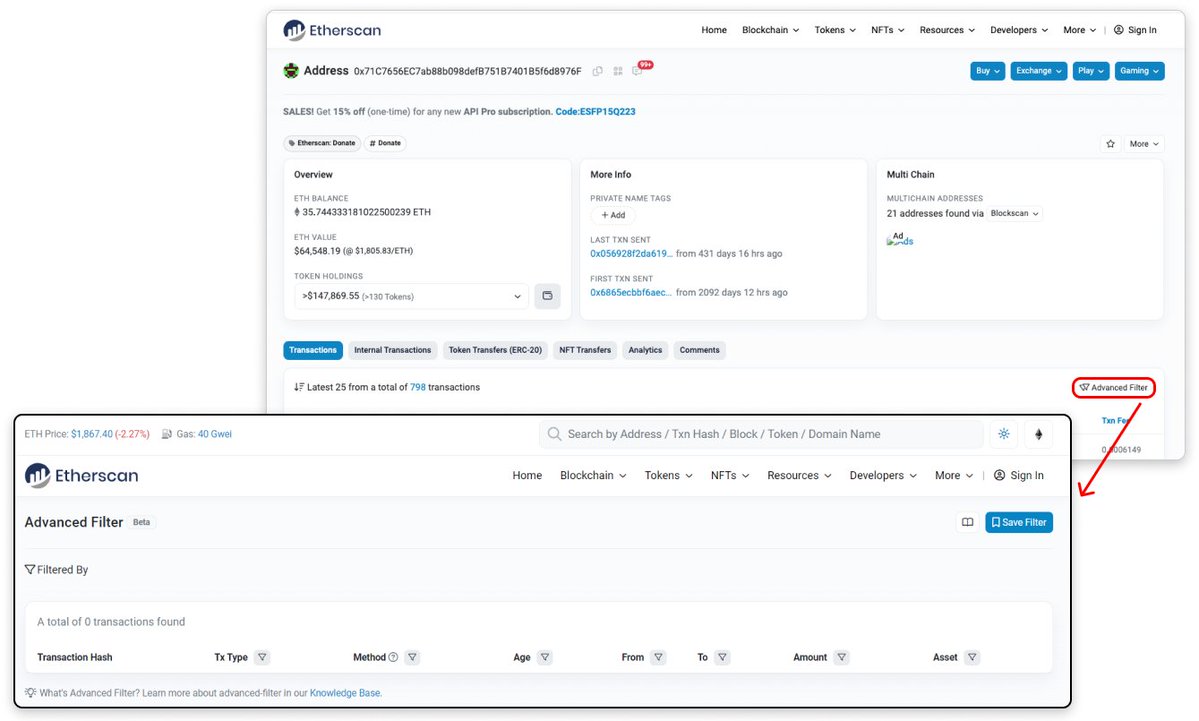
On June 2, 2023, the Ethereum blockchain explorer and insights web portal, Etherscan, released a new feature that allows users to refine their transaction searches with filters. Onchain sleuths, researchers, and investigators can now narrow down the results in a single view using a variety of new filters.
Etherscan Introduces Advanced Filtering Tool
Users can now explore the Ethereum blockchain ecosystem and activity in a different manner with the release of Etherscan’s new filter update. The new release, known as “Advanced Filter,” enables users to refine blockchain searches by utilizing specific criteria.
“Advanced Filter enables you to analyse a variety of transactions within a single view,” the team’s Twitter account stated. “Filter by transaction type, function name, duration, amounts, assets and from [and] to addresses.” Etherscan provided an example of exploring the transfers and internal transactions linked to Multichain router version 6 during a seven-day period.

Users of the Advanced Filter feature can also save their filter searches for future reference. Over the past few years, analytics firms and tools, including platforms like defillama.com, arkhamintelligence.com, nansen.ai, and dune.com, have gained popularity among the crypto community by offering onchain insights. Several users and onchain sleuths complimented Etherscan on the launch of the new Advanced Filter tool.
“Etherscan just nuked a few analytics companies with the advanced filter,” one Ethereum proponent wrote. Etherscan further detailed that the new release is a beta version and there are some limitations. Issues include “poor reputation tokens, ignore list tokens, and failed transactions displayed with no option to hide them” and “From and To addresses are only joined by OR operator.”
The team at Etherscan believes that the new filter tool will benefit the community. In a blog post discussing the filter, Etherscan stated, “By refining search results based on specific criteria, users can focus on transactions, addresses, and activities that are most relevant to their research, monitoring, or investigative needs.” The blog post delves into each filter provided and showcases a few examples of how they function.
What are your thoughts on Etherscan’s new Advanced Filter tool? Share your views and opinions about this subject in the comments section below.
Comments
Post a Comment